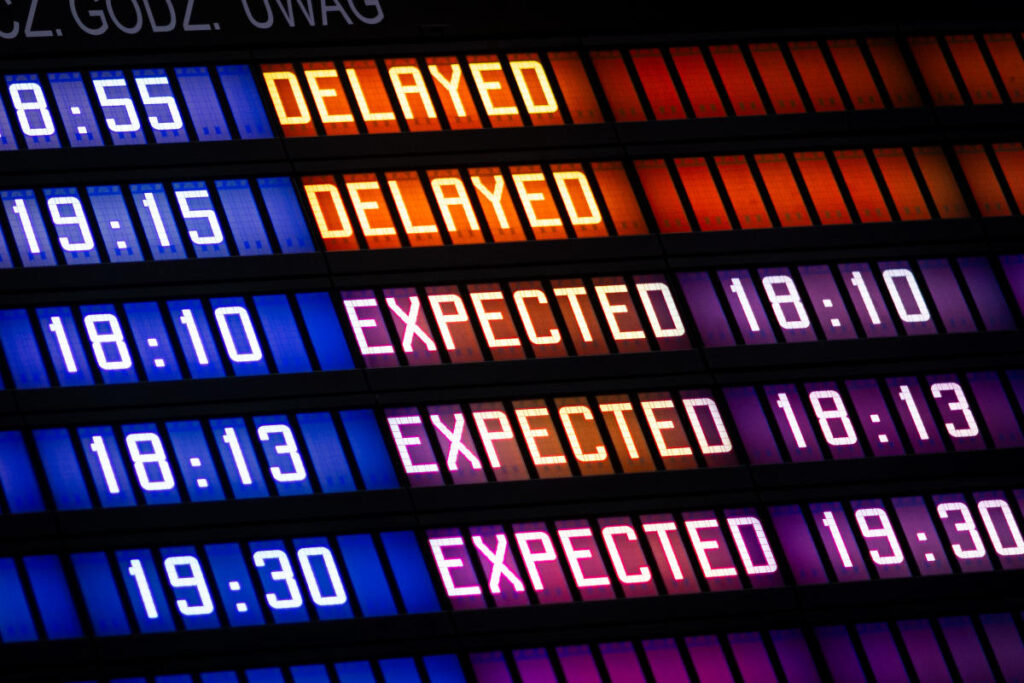Congress has earmarked $240 million to help alleviate the pilot shortage that has plagued the airline industry in recent years, causing delays for travelers trying to get to their destinations.
The new funding was rolled into the Federal Aviation Administration's recent reauthorization, and it will flow to schools and other organizations that focus on aviation-related education, helping to lower costs for students and providing more services.
The government expects there to be around 16,800 vacant pilot positions each year over the next few years.
“This is a long-term issue,” Sen. Raphael Warnock said in a recent interview in his Capitol Hill office. The Georgia Democrat was a key advocate for the new funding.
“There are too few applicants and too few applicants,” he added.
The aid comes as a new summer travel rush begins, posing new challenges for airlines.
The Transportation Security Administration predicts this summer will be the busiest summer vacation travel season ever as the travel industry fully recovers from COVID-19.
Meanwhile, the short-term pilot shortage may be easing, thanks in part to market forces.
Transportation Secretary Pete Buttigieg, speaking on Yahoo Finance recently, warned that there could be many problems lurking for travelers this summer, but said the pilot levels could be a silver lining.
“From my conversations with the industry, pilot availability is definitely improving,” he said, citing rising wages as the driving force behind the “real improvement.”
The Air Line Pilots Association, the nation's largest airline pilots union, has long maintained that there is no pilot shortage and instead has sought to focus on what it says are the root causes of recent travel problems, including the policies of airline executives.
Buttigieg said another thing travelers should be careful of this summer is overscheduling, where airlines book flights that they don't have the staff to actually serve.
The transportation secretary said he expects the Biden administration's recently finalized rules requiring airlines to automatically issue cash refunds will “shift the economics” there.
The “business case” for addressing the shortage
Warnock's hope is to focus on the future and increase the number of people who can become pilots over time.
“I'm making the business case for diversity,” Warnock said in an interview this week. “It's in our enlightened self-interest to find great talent and create a strong pipeline to become pilots.”
The senator, who sits on the Senate Subcommittee on Aviation Security and represents Atlanta's mega airport, Hartsfield-Jackson International Airport, pushed an amendment during a recent debate to double the airline workforce expansion plan from $120 million to a final total of $240 million.
He also added provisions to encourage greater diversity, both for pilots and the aviation industry as a whole.
Warnock often highlights the financial hurdles that prevent people from entering the profession, with some estimating it can cost aspiring pilots $100,000 to earn their first paycheck as a commercial pilot.
He cites someone like Ezekiel Andrews, an Atlanta resident and aspiring commercial pilot who has logged just over 1,000 of the 1,500 flight hours needed to carry paying passengers.
It's taken about 17 years of on-and-off to get to this point, Andrews said in an interview, but he hopes to cross the finish line this year as he works as a flight instructor.
Andrews comes from a modest family and described watching fellow freshmen who could afford to log uninterrupted flight hours “pass me by.”
When asked about the new funding from Congress, he noted that while the money is unlikely to help him personally, it should make life easier for others like him who find themselves in a similar situation in the future.
“That's amazing,” he added.
The larger discussion of what DC can do
The new funding for training future pilots came after a lengthy debate among MPs about what else the government could do on the issue.
One controversial idea, shelved for now, would change current rules requiring commercial airline pilots to have 1,500 hours of flying experience.
Another proposal, also shelved, would raise the retirement age for pilots from 65 to 67.
Senator Warnock declined to intervene in those efforts for now, saying this week that “I've heard a lot on both sides of this debate, but I've decided to focus on the first half of the issue.”
Ezekiel Andrews is more blunt: He hopes to be working for a regional airline by this time next year, but has doubts about the 1,500-hour flying requirement before entering the higher-paying world of commercial aviation.
He said he learned a lot in his first 500 hours flying, but “at this point, I've kind of plateaued.”
“It's just a hole in the sky,” he said.
Ben Warschle is Washington correspondent for Yahoo Finance.
Click here for Business and Money Politics News
Read the latest financial and business news from Yahoo Finance


